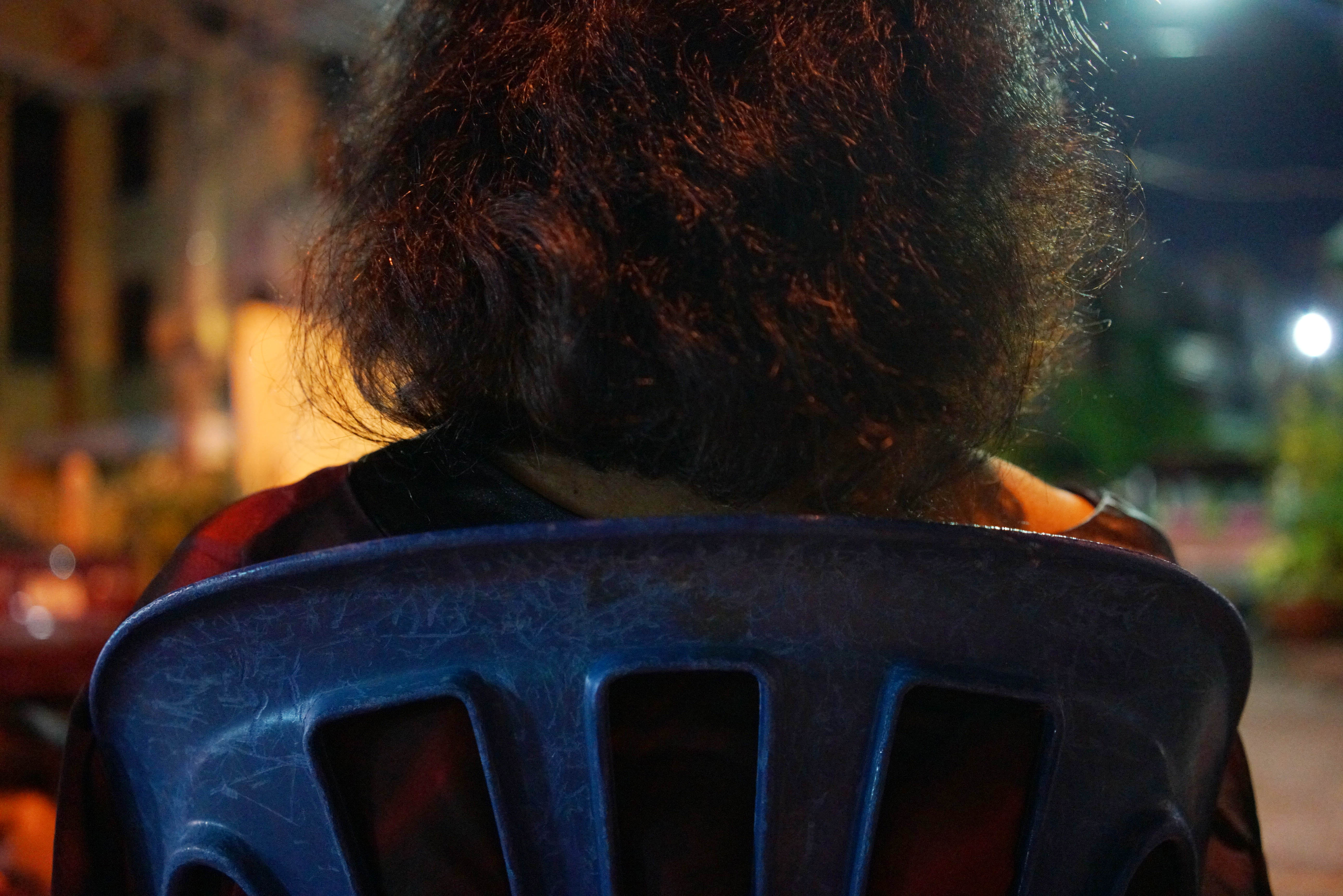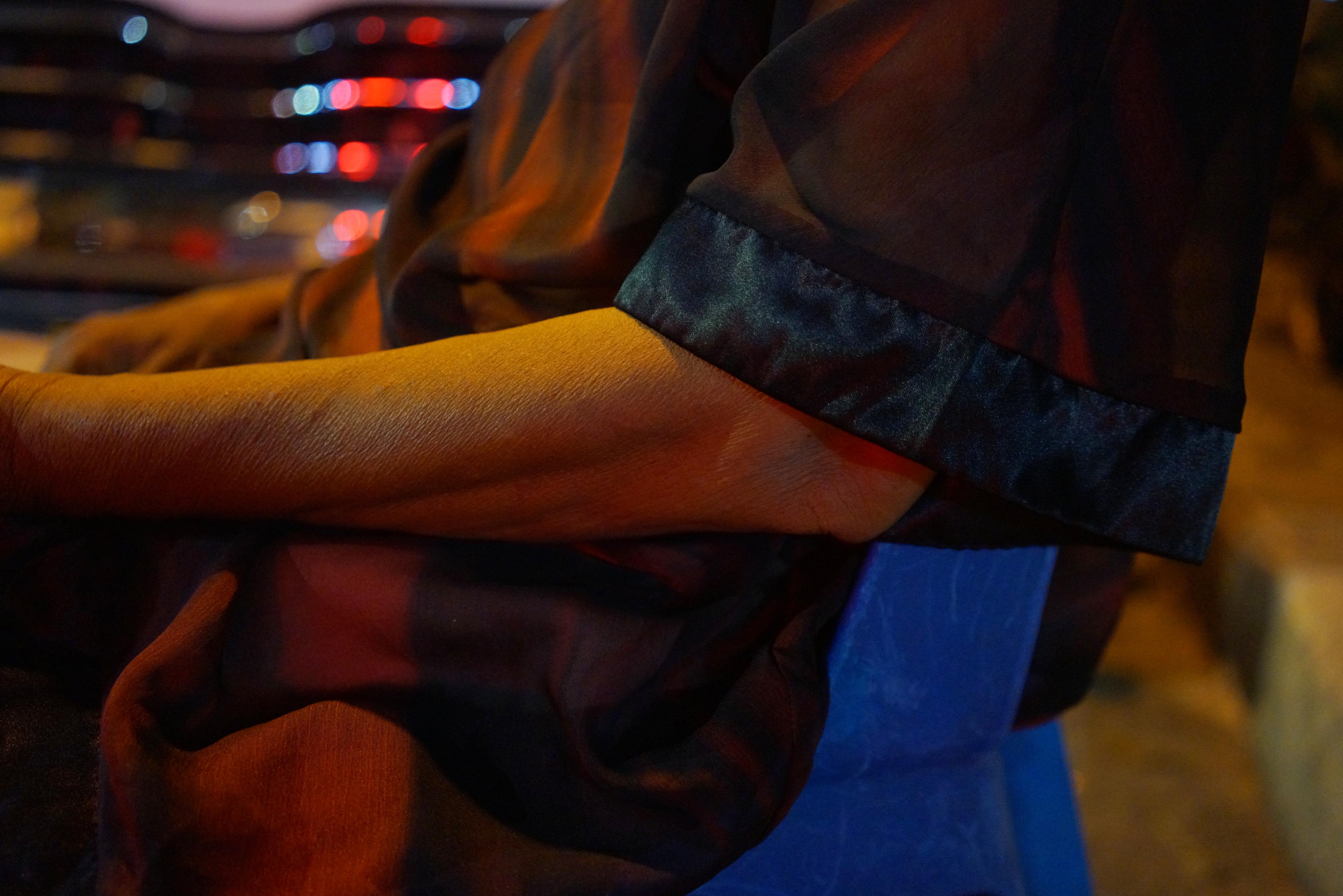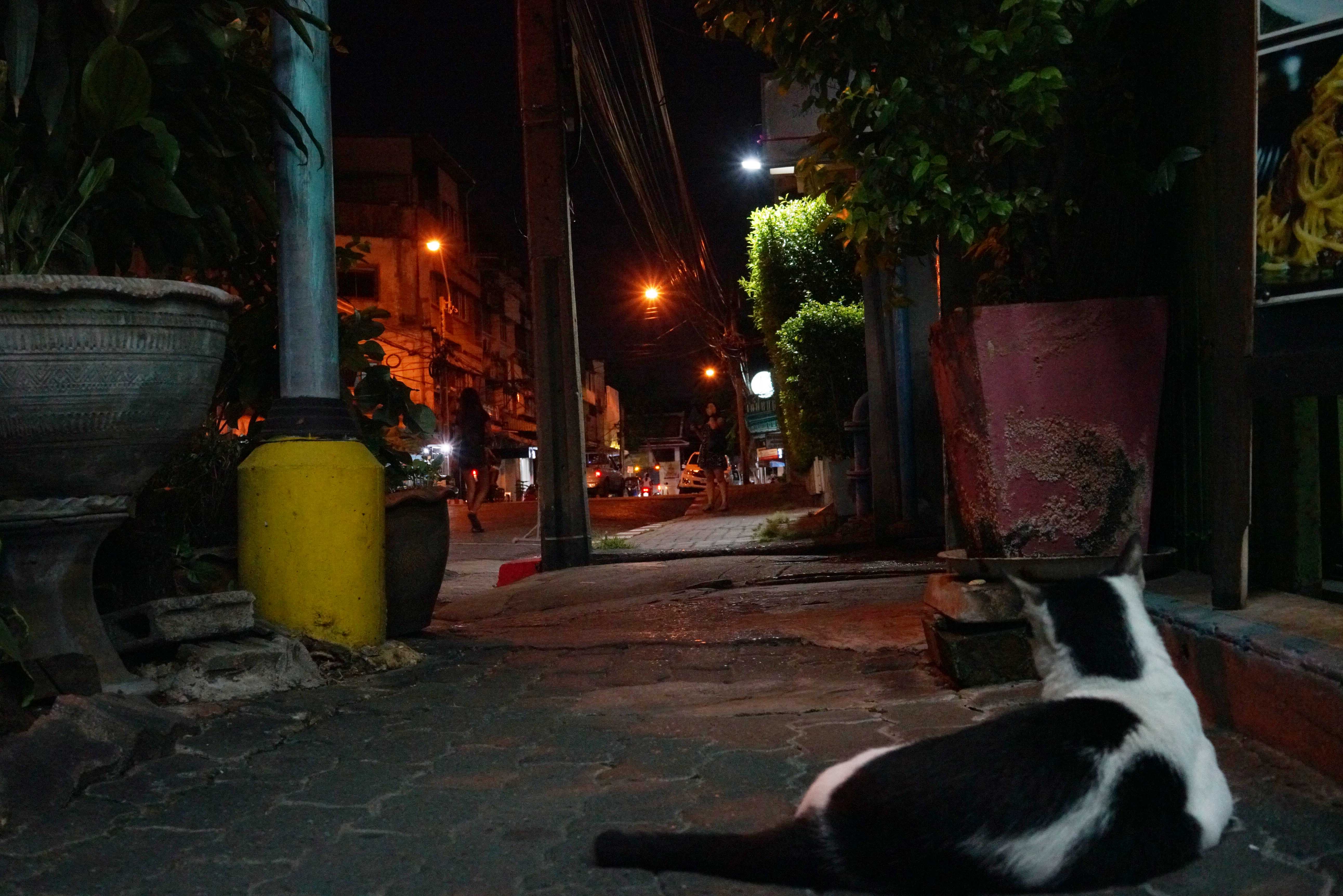The sun was disappearing between the cracks of buildings of the Metropolis. The last sunlight glimmered, leaving the City of Angels. Neon lights slowly illuminated the city. The sign of the night had arrived. Shops and stalls were preparing to open.
Kao San Road, the (in)famous touristic hub of Thailand where foreigners and locals alike visit for a colorful and vibrant nightlife, consists of pubs, bars, street food stalls, and massage parlors to entertain their visitors until the end of the night. Raucous bars blasted different types of music to attract visitors. It is not surprising that the area generates more than ten million
Baht a night, as people jostled through the jam-packed road.
On the opposite side of the road, we would see a quiet alley. Not many people; in fact, the atmosphere was the opposite of the Kao San. Second-hand vendors were lying their antique objects for sale on footpaths. Each piece looked outdated and broken; old radio transmitter with a circuit remains, broken camera, etc., all displayed on a plastic mat, waiting for a collector or a mechanic to bring it home.
An old lady dragged a blue chair to the corner, near a tiny intersection. She dressed well; red lips, neat makeup, and a pair of sparkling silver earrings. Similar to many plastic chairs nearby that were placed in the corners of the alley for ladies to ease their tired legs as they were waiting for something…or someone.
Soon enough, a man came up to one of them. They talked for less than a minute then went off together, leaving the chair behind. One by one. You guess it right. These women were prostitutes.
But the old lady, however, she remained seated. She was still waiting. She watched people as they passed by. Shouldn’t old ladies at her age be staying home or spending their time with their grandchildren?
Her name was Somjai, she told me to call her “Auntie Somjai” after I observed her for a while and started a conversation with her. She was smiley and spoke with confidence in her voice. She was willing to talk.

“Nowadays lots of young girls start to do it. A lot actually. Incredibly a lot,” she answered when I ask her about the area. “I haven’t had any guest for two days now. Very few guests these days. No one wants to spend money. Now I don’t have money to get any food. But where would a person like me get the money from? So I have to come and sit like this. At least I might get a guest.”
Auntie Somjai was born in 1948, now at the age of 71. She started working as a sex worker at the age of 22. After her first marriage, her son was infected with Polio while her husband was not willing to get a job. This caused her to do whatever it takes to earn money for her son’s medical treatment. It was during that time that her friend asked if she wanted to work as a prostitute at the border in the South. She then decided to go in order to get enough money for her son.
“I felt so sorry for my poor child. I cried. I had to leave him with my mum to earn enough money for his treatment.”
Although unwillingly, she did what she had to do at the moment. She came home every two months. Oftentimes she brought her son with her to the border where she worked, at the distance of 1,166 kilometers. After that she became a panderer, asking two girls to work as prostitutes. After doing so for a while, Auntie Somjai decided to go back home with a small sum of money she had saved to start her life over and divorced her husband.
However, being a single mum with a Polio-infected son was harder than she imagined. She had to carry all the burdens. Her saving and the factory job were not enough to pay for her son’s medical fee, so she went back to prostitution. As an uneducated, single woman like her, that was the only means for her son to survive.
She moved to Bangkok to work as a prostitute. Soon after, she fell in love with her soon-to-be second husband, which was one of her clients. “He liked me and he told me he was a teacher. I believed him, but I was tricked. He was not a real teacher. He was a tricycle rickshaw puller. I felt very hurt.” Her voice sounded sad as she continued to tell her story. Her eyes looked empty as if she was familiar with bitterness and disappointments.
After living together for two months, she became pregnant. “Back then there was no condom like nowadays so it was very easy to get pregnant,” she went on. Both of her parents did not support having another child, so she decided to undergo an abortion. Despite being illegal, the operation was successful. However, she soon to become pregnant for a second time soon after. “I tried the abortion again but it failed this time,” she recalled. And that was how her second son was born. Her husband told her he would go back to his hometown in Isan (a northeastern region of Thailand), but he never returned. Being a middle-aged woman with the responsibility of two sons forced her to work again as a sex worker in order to feed her two children.
Her life took another unexpected turn afterwards as she lost her first son at the age of 25 to Polio, and her second son to suicide when he was 37. All the things she had clanged onto and her whole world were destroyed.
While she was telling me her story, a man walked passed us and he joked with Auntie, “who would have thought an ancient object like you would have a family?” She only smiled back at him and let the silence be the answer.
It was already midnight. The whole neighborhood was becoming quiet, but all the remaining sex workers were still sitting on their chairs, waiting. Auntie Somjai had not gotten any client for today.
“Some days I did not get any guest at all. I sat and felt drowsy all night. Today I had a coffee so it was much better. Sometimes if it was too much I would take a couple bottles of energy drink just to feel more awake.”

She said that some days she had to wait until late. Many times at night she would feel like giving up, and wanting to go home, but she tried to push through until she got a guest and earned some money to go home. Usually her clients were middle-aged or at her age. Some were taxi drivers. Some were construction workers or people from the neighborhood. During our conversation, an old man came up to us with curiosity and wanted to join us for the conversation.
“Nothing important. It’s just women’s talk.”
She said that prostitution and condom go hand in hand. Women need to know how to protect themselves. All agreement has to be made beforehand; what the client wants, how to do it, and how far they can push it. For Auntie Somjai, she had to use a lubricant every time.
“I’m 70. It hurts. I told myself I won’t do it again and to live month by month. I don’t know whether I will have food for the next month. I took a loan of 1,000 Baht and I have to pay back daily. I haven’t paid them today. I plan to go back to sell fried shrimps on the street during the day. Tomorrow I cash out the Welfare Smart Card* so that I can buy all the ingredients. I can fry shrimps with that.”
A lady in black walked past us and gave us a quick warning, “be careful, they are coming down,” which means the police were coming. In her life of being a prostitute Auntie Somjai was only arrested twice. “I don’t come here everyday. I only come here when I don’t have enough money. I used to come here for two days straight because I did not have any food at all. I had to fill my stomach with water.”
Her life story was narrated through a casual conversation and before it was dawn, I asked to meet her again at her place to talk more. She was willing. She told me her address, which was a rented room with cats next to a train station outside of Bangkok. She told me to ask around the neighborhood and they would know. I asked for her number. “I don’t have a phone,” she responded.

She came to work as soon as the street illuminated by lamp posts and neon signs until dawn, then she would catch a bus home. She slept during the day and worked at night. The blue hour was when her working hour starts. But why a woman at the age of 71 had to wait among swarm of mosquitoes on the street, for a client to exchange her body for a few notes in this civilized City of Angels? I wonder.
Elderly Poverty and Prostitution (Pt.2) will be published on 27 September, 2019. Stay tuned for the update!
*Welfare Smart Card is the state-sponsored subsidy and welfare scheme for low income earners, the disabled, elderly and bed-ridden patients. Each registered card holder will receive up to 300 baht a month to purchase consumer products at certain governmental shops; a 45-baht discount for cooking gas for every three months and a 500-baht fare subsidy for public transportation of buses, inter-provincial buses and electric trains once every month.
First published in The Counter Culture
www.facebook.com/tcijthai
Tags






